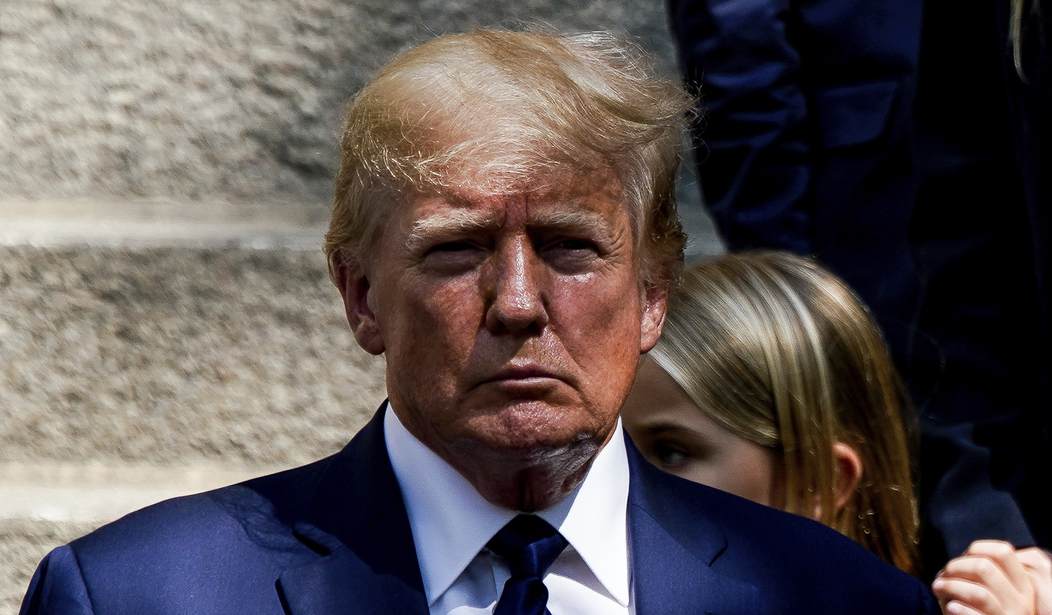The QAnon movement, for all intents and purposes, is dead. Nobody is more upset about this fact than members of the activist media.
With the congressional elections coming up, it appears the press might be trying to use the conspiracy theory movement to paint Republicans as whack jobs. But as with most of their lies, this one isn’t going to work.
Author Stuart A. Thompson wrote a piece titled “QAnon Candidates Aren’t Thriving, but Some of Their Ideas Are,” in which he makes a questionable attempt to tie QAnon to Republican candidates and the conservative movement overall. But his arguments don’t quite hold up under even a modicum of scrutiny.
For starters, Thompson focuses on Ron Watkins, who is running for Congress in Arizona. He has been one of the figureheads of the QAnon movement and, with his father, Jim Watkins, runs 8Kun, an online forum formerly known as 8Chan, which was instrumental in the QAnon movement. But his prospects for even winning the primary are bleak, as Thompson notes:
More established Republican rivals have vastly outraised Mr. Watkins in Arizona’s Second District. Two other congressional candidates in Arizona who have shown some level of support for QAnon also trail their competitors in fund-raising ahead of the Aug. 2 primary. A fourth Arizona candidate with QAnon ties has suspended his House campaign. The same trend is playing out nationally.
Thompson goes on to claim that the GOP “flirted with QAnon” during the 2020 election season as “several Q-linked candidates sought higher office and Q merchandise appeared at rallies for then-President Donald J. Trump across the country.” But he also acknowledges that “identifying with the movement emerged as a political liability.”
Even though Thompson admits that candidates tied to the movement are not exactly popular with the voting base, he makes the dubious arguments that its “themes have burrowed deeper into mainstream Republican politics this year,” according to some unnamed “experts.” These themes include the belief that “deep-state operatives control the government and that Mr. Trump is waging a war against them.”
Thompson also refers to the belief among conservatives that the 2020 presidential election was stolen via voter fraud and other machinations.
Indeed, just a few booths away from Mr. Watkins’s in Prescott, other campaigns were suggesting that election results could not be trusted, an idea that QAnon helped popularize. Mike Rothschild, a conspiracy theory researcher and author, noted that “People don’t really identify themselves as QAnon believers anymore,” but that “the views of QAnon are massively mainstream.”
The author then attempts to link parents’ concerns about inappropriate material being presented to children in K-12 public schools to the QAnon movement. He writes:
On the campaign trail, Republican candidates avoid talking about the idea that a cabal of pedophiles is preying on children, a core tenet of QAnon. But they embrace false claims that liberals “groom” children with progressive sex education. When criticizing Covid-19 restrictions, many Republicans riff on QAnon’s belief that a “deep state” of bureaucrats and politicians wants to control Americans.
This was the most questionable of claims made in the article – QAnon’s theories about pedophilia have absolutely nothing to do with the nationwide backlash against school districts infusing their curricula with far-leftist ideas on gender identity and sexuality. Indeed, the movement never even dealt with this particular issue even in its heyday. It’s nothing more than a cynical attempt to defend the hyper-focus on sexuality and transgender ideology in schools by labeling its opponents as conspiracy theorists.
Moreover, the idea that the election was stolen came from President Trump himself, not QAnon. Indeed, this emerged among Republicans initially. Believers in the movement only latched onto it after others did. It was one of their last-ditch efforts to remain relevant.
The deep state theory predates QAnon as well. In fact, it even predates Trump’s arrival on the political scene. People have long believed that forces exist in and out of the federal government that are working towards a globalist, Marxist agenda. If one looks closely enough, it is easy to see that this is happening without engaging in theories about a smoke-filled room full of powerful men plotting the destruction of America. In essence, Thompson is trying to credit the QAnon movement for these ideas even though they existed before the movement gained prominence.
The bottom line is that QAnon is no longer a thing – which means it has outlived its usefulness as a political weapon to be used against the right. The vast majority of conservatives never bought into the movement, and even fewer are still espousing its ideas. Nevertheless, media activists like Thompson seem to be hoping they can resurrect the movement. But they might want to look for a new strategy because this particular dog will not hunt.













